If you’re a fan of freshly squeezed orange juice, lemon water, or even lime-based cocktails, a citrus juicer is an essential kitchen tool. Designed specifically for extracting juice from citrus fruits like oranges, lemons, limes, and grapefruits, these devices make it easy to get fresh juice without any hassle. Citrus juicers come in various types, from manual presses to electric models, each offering different levels of convenience and efficiency. In this blog post, we’ll explore everything you need to know about citrus juicers, including types, benefits, buying tips, and how to care for your juicer in the UK market.


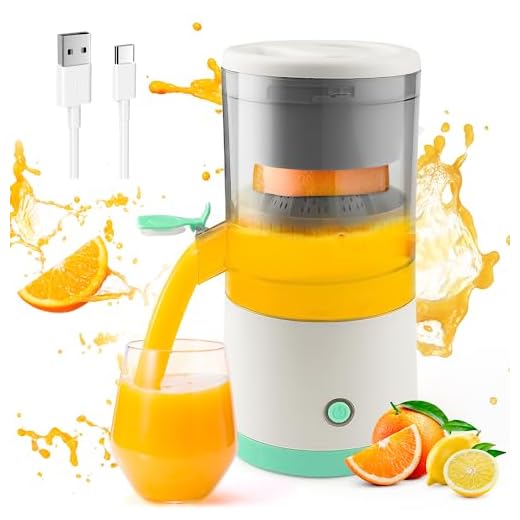
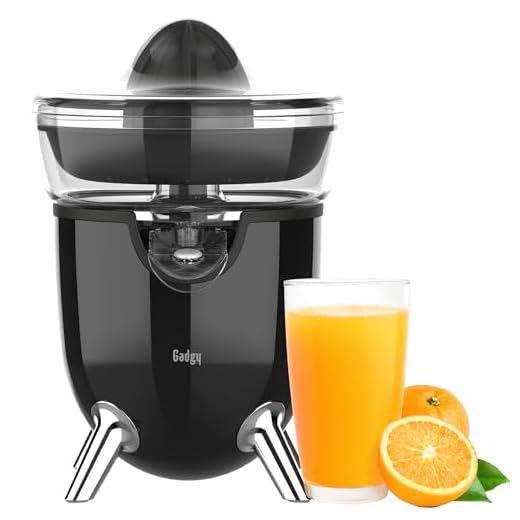
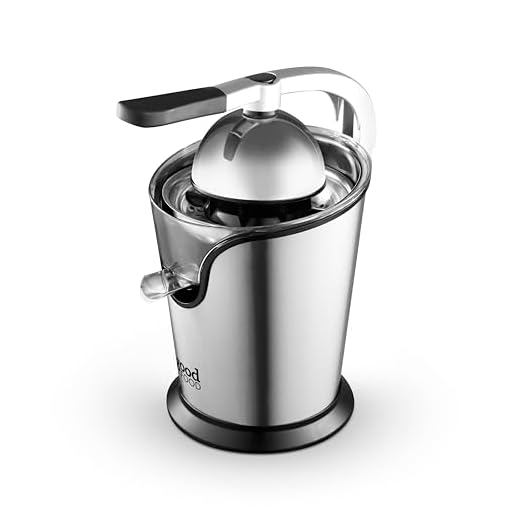
Types of Citrus Juicers
- Manual Citrus Juicers: These are hand-operated devices that require you to press or twist the fruit against a reamer to extract the juice. They are compact, affordable, and perfect for occasional use or small quantities of juice.
- Electric Citrus Juicers: Powered by electricity, these juicers automate the juicing process, making them ideal for larger quantities or frequent use. With a simple press of a button, the machine extracts juice more efficiently than manual methods.
- Handheld Reamers: A basic, manual tool that involves holding a reamer in one hand and pressing a halved citrus fruit against it to extract juice. This is great for those who only need a small amount of juice and don’t mind a little manual labour.
- Press Juicers: Lever-based juicers that use a mechanical arm to press down on the fruit, extracting juice with minimal effort. These are often used in cafes and restaurants for their ease and efficiency.
Benefits of Using a Citrus Juicer
Citrus juicers offer several benefits, especially if you enjoy fresh juice as part of your daily routine. Firstly, they make juicing quicker and more convenient, especially when compared to squeezing by hand. Additionally, using a juicer ensures you extract more juice from your citrus fruits, reducing waste. Most citrus juicers are compact, so they don’t take up much space in your kitchen. Finally, freshly squeezed juice is not only more flavourful but also healthier, as it contains no preservatives or added sugars often found in store-bought juice.
Key Considerations When Buying a Citrus Juicer
Before purchasing a citrus juicer, it’s essential to consider a few key factors:
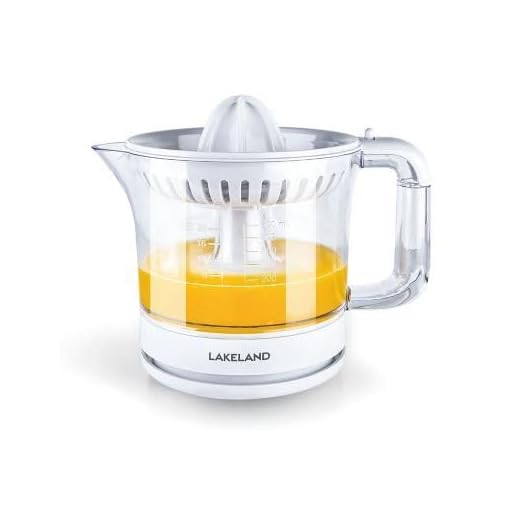
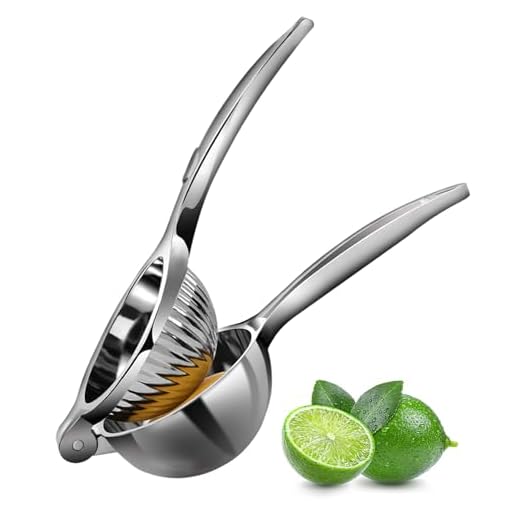



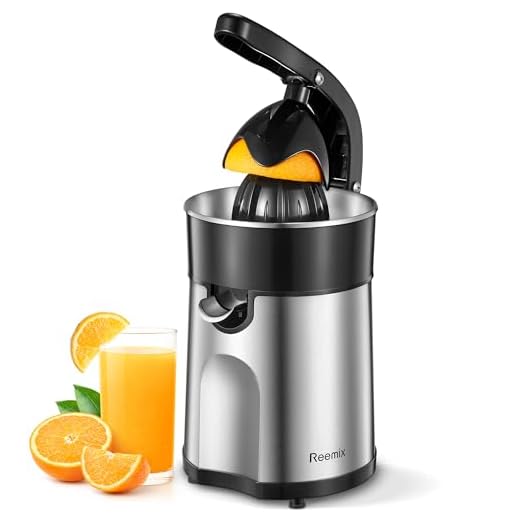
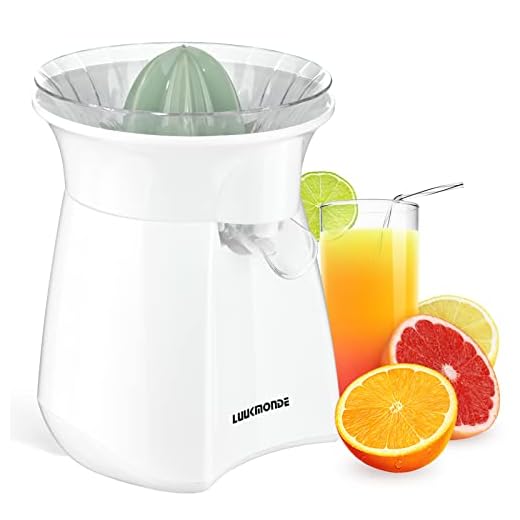

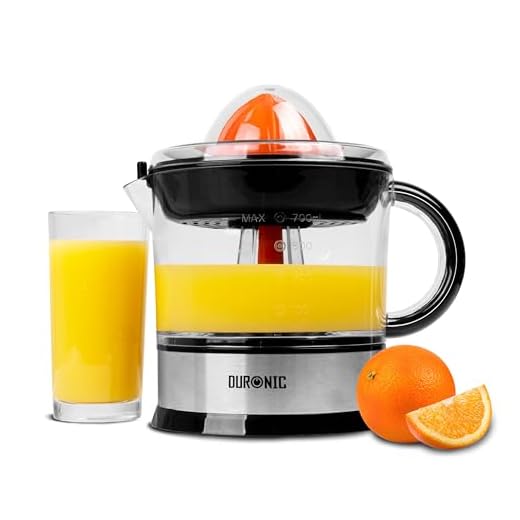
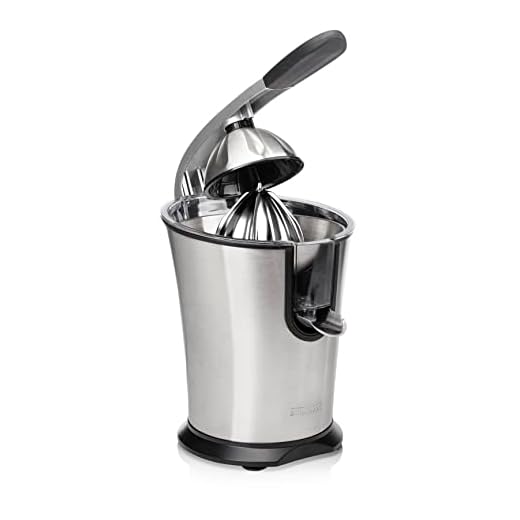
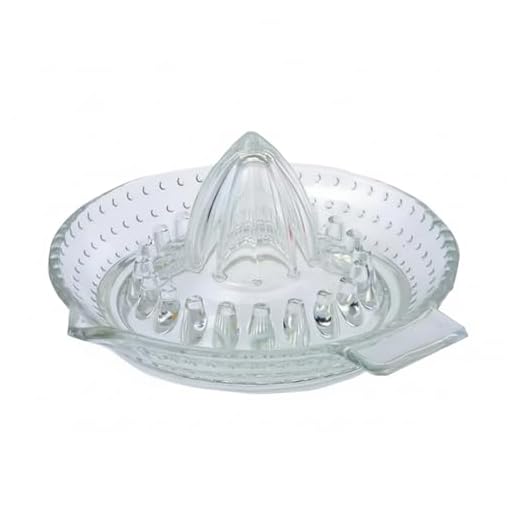

- Frequency of Use: If you plan to juice regularly, an electric juicer will save you time and effort. For occasional use, a manual or handheld juicer may be sufficient.
- Juicing Volume: Think about how much juice you typically need. Electric juicers are better for large batches, while manual options work well for smaller quantities.
- Ease of Cleaning: Some juicers come with multiple parts that need to be cleaned after each use. Look for models that are easy to disassemble and dishwasher safe.
- Storage Space: Manual juicers are often compact, while electric models may take up more counter space. Consider your kitchen’s storage capabilities before making a choice.
- Price: The cost can vary widely depending on the type of juicer and additional features. Set a budget that aligns with your needs and how often you’ll use the juicer.
A Buying Guide for Citrus Juicers
When buying a citrus juicer, it’s important to match your needs with the right product. For those who frequently make large batches of juice, an electric model is worth the investment. Popular brands like Braun, Breville, and Sage offer high-quality electric juicers in the UK. If space is a concern or you only need a juicer occasionally, consider a manual model like a handheld reamer or a basic press juicer. Additionally, look for models with easy-to-clean components, such as dishwasher-safe parts. Stainless steel reamers and presses tend to last longer and provide more efficient juice extraction.
Pros and Cons of Citrus Juicers
- Pros:
- Fast and efficient juicing process, especially for electric models.
- Easy to use, even for beginners.
- Preserves the fresh flavour and nutrients of citrus fruits.
- Minimal waste, as juicers extract maximum juice from the fruit.
- Cons:
- Electric juicers can be expensive and bulky.
- Manual juicers require more effort and are slower for large quantities.
- Some models can be difficult to clean, especially if they have multiple parts.
- Juicing can be messy if not done properly, with pulp and juice splashing.
Usage Tips for Citrus Juicers
To get the most juice from your citrus fruits, roll them on the counter before juicing to soften them up. If you’re using a manual juicer, cut the fruit in half and press firmly against the reamer while twisting. For electric juicers, simply press the halved fruit onto the juicing cone and let the machine do the work. Always use fresh fruit for the best flavour and quality. When you’re finished juicing, clean the juicer immediately to prevent pulp and juice from hardening on the parts, which makes cleaning easier.
Shopping for Citrus Juicers Online in the UK
Online retailers in the UK such as Amazon, Currys, and John Lewis offer a wide range of citrus juicers. When shopping online, pay attention to customer reviews to get an idea of the product’s durability, ease of use, and performance. Look for sellers offering warranties, free shipping, or return options, as these can add value to your purchase. Price comparison tools and online deal finders can also help you locate the best offers, especially during sales periods like Black Friday.
Reviews, Prices, Coupons, and Discounts
Prices for citrus juicers vary depending on the type and brand. Manual citrus juicers can range from £10 to £50, while electric models typically cost between £40 and £150. High-end electric juicers from brands like Sage and Breville tend to be on the higher end of the price spectrum. It’s worth keeping an eye out for coupons and discounts, especially during holiday sales. Websites like VoucherCodes and Groupon often list discount codes for major UK retailers, helping you save on your purchase.
Choosing the Right Citrus Juicer for You
To choose the right citrus juicer, first determine how much juice you plan to make and how often. For occasional use, a manual juicer might be sufficient, while electric juicers are ideal for larger families or those who juice regularly. Consider the ease of cleaning and storage space, especially if you have a smaller kitchen. If you’re looking for versatility, some juicers also come with attachments for different sizes of citrus fruits or additional features like pulp control.
Caring for Your Citrus Juicer
Proper maintenance is essential to ensure your citrus juicer lasts. After each use, disassemble the parts and wash them in warm, soapy water. Many juicers have dishwasher-safe components, but check the manufacturer’s instructions to be sure. Clean the juicing cone or reamer thoroughly, as pulp can get stuck in the grooves. For electric models, wipe down the motor base with a damp cloth, but avoid getting it wet. Regular cleaning will prevent the buildup of fruit acids that can damage the machine over time.
Frequently Asked Questions
- Do I need an electric juicer for citrus fruits? No, you don’t need an electric juicer, but it can make the process faster and easier, especially if you’re juicing large quantities. Manual juicers are sufficient for occasional or small batches of juice.
- Can I use a citrus juicer for other fruits? Citrus juicers are specifically designed for oranges, lemons, limes, and grapefruits. They aren’t suitable for other fruits like apples or berries, but some juicers may have additional attachments for other uses.
- What is the best citrus juicer for home use? The best citrus juicer depends on your needs. If you’re looking for convenience, an electric juicer like the Sage Citrus Press is a great option. For smaller kitchens or occasional use, a manual juicer like the Joseph Joseph Helix Citrus Juicer works well.
- How do I clean my citrus juicer? Most citrus juicers have removable parts that can be washed in warm, soapy water. Some models have dishwasher-safe parts, but check the user manual. Clean your juicer after each use to prevent pulp build-up.
- Are citrus juicers expensive? Citrus juicers come in a wide range of prices. Manual juicers can be as affordable as £10, while high-end electric models can cost upwards of £100. Set a budget based on how often you plan to use it.
Conclusion
Investing in a citrus juicer is a great way to enjoy fresh, flavourful juice at home. Whether you prefer the simplicity of a manual juicer or the speed of an electric model, there’s a wide range of options available to suit your needs and budget. By considering factors such as ease of use, cleaning, and frequency of juicing, you can find the perfect citrus juicer for your kitchen. In the UK, popular retailers offer a variety of models at different price points, and with the right care, your juicer will provide you with delicious, nutrient-packed juice for years to come.






